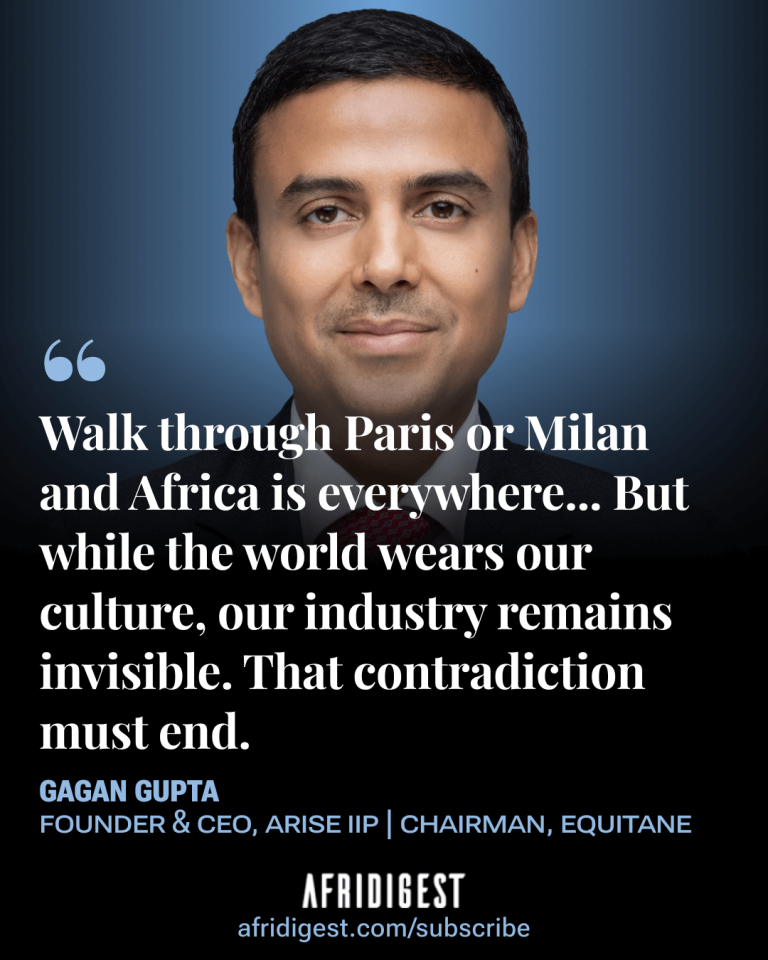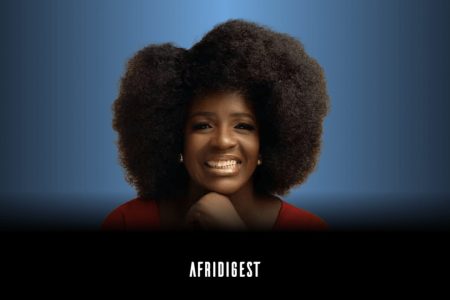Africa’s cultural influence is widespread, but its economic power remains minimal.
“Walk through Paris or Milan and Africa is everywhere. It’s in patterns, designs, and inspiration. But while the world wears our culture, our industry remains invisible. We export imagination and import products. That contradiction must end.”

That’s Gagan Gupta, Founder & CEO of ARISE Integrated Industrial Platforms, highlighting a painful irony that extends far beyond fashion into Africa’s entire industrial landscape.
The contradiction spans multiple sectors:
- Africa produces 70% of the world’s cocoa, yet imports chocolate
- It holds 30% of the world’s mineral reserves but imports finished electronics
- It produces vast quantities of cotton but imports textiles worth $23B annually
- The continent holds rich timber resources, yet furniture is often imported from abroad
The pattern is clear: “Africa exports [raw] potential and imports [finished] value,” Gupta says.
And he’s not just pointing to the problem, he’s building solutions.
From timber processing in Gabon (via the Gabon Special Economic Zone) to textile parks attracting global brands to Benin (the Glo-Djigbé Industrial Zone Textile Park) to an upcoming state-of-the art garment mega-factory in Nigeria (the Renewed Hope Giga Plant) and beyond, his companies are building integrated industrial ecosystems across 14+ African countries, transforming how the continent participates in global value chains and creating jobs locally.
And just last week, ARISE, which has deployed nearly $2 billion in infrastructure and enabled 50,000+ jobs since 2010, closed a landmark $700M investment from Saudi Arabian infrastructure investor Vision Invest — one of Africa’s largest-ever private infrastructure deals — to continue its expansion across the continent.
The goal isn’t just manufacturing — it’s reclaiming the full value chain of Africa’s abundant resources and building what Gupta calls “industrial sovereignty.”
As Gupta puts it: “This isn’t a trade imbalance: it is a structural dependency.”
His goal? Transform Africa from a continent that primarily exports raw materials to one that manufactures finished goods.
His advice? The next time you see African-inspired fashion, ask yourself: was it made in Africa or simply made from Africa?
There’s a difference — and that difference represents billions in lost economic opportunity.
What’s your take?
- Can Africa break the cycle of exporting raw materials and importing finished goods fast enough to compete globally?
- Is foreign investment like ARISE’s $700M raise from Saudi Arabia the solution, or does it recreate old patterns of extraction?
- What would it take for “Made in Africa” to become as prestigious as “Made in Italy” or as ubiquitous as “Made in China”?





Share: